On This Page
Chief Justice Stuart Rabner

Chief Justice Stuart Rabner is the eighth chief justice to lead the New Jersey Supreme Court since the 1948 state constitution.
Chief Justice Rabner was nominated to the Supreme Court by Governor Jon S. Corzine and sworn in on June 29, 2007. He was nominated for tenure by Governor Chris Christie and sworn in on June 20, 2014.
Born on June 30, 1960, Chief Justice Rabner grew up in Passaic. He graduated summa cum laude from the School of Public and International Affairs at Princeton University in 1982 and cum laude from Harvard Law School in 1985. He served as a law clerk to U.S. District Court Judge Dickinson R. Debevoise before joining the U.S. Attorney's Office in Newark in 1986.
After beginning his career as an assistant U.S. attorney, Chief Justice Rabner worked in a number of positions including first assistant U.S. attorney and chief of the terrorism unit. He was chief of the office's criminal division when he was named chief counsel to Governor Corzine in January 2006. He was named New Jersey attorney general in September 2006 and served in that position until he joined the Court.
Chief Justice Rabner is a member of the Board of Directors of the Institute of Judicial Administration at New York University School of Law. He served as a member of the Board of Directors of the Conference of Chief Justices from 2010 to 2012.
Chief Justice Rabner and his wife, the former Deborah Wiener, have three children.
Justice Anne M. Patterson
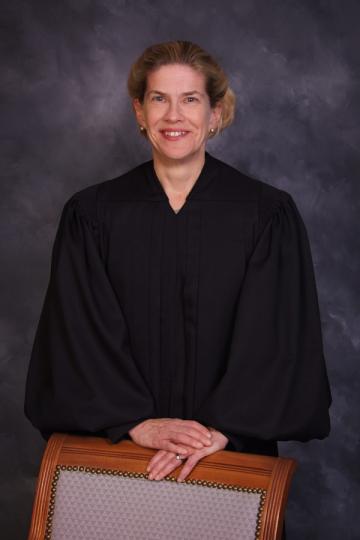
Justice Anne M. Patterson was nominated as an Associate Justice of the New Jersey Supreme Court by Gov, Chris Christie and was sworn in on Sept. 1, 2011. She was nominated for tenure by Gov. Phil Murphy and was sworn in on July 31, 2018.
Justice Patterson was born in Trenton, New Jersey in 1959. She graduated from Dartmouth College with a degree in government in 1980 and received her law degree from Cornell Law School in 1983.
At the time of her appointment, Justice Patterson was a partner at Riker, Danzig, Scherer, Hyland & Perretti. Her practice focused on product liability, intellectual property and commercial litigation in state and federal trial and appellate courts.
Justice Patterson served as chair of the New Jersey State Bar Association product liability and toxic tort section, as an officer and trustee of the Association of the Federal Bar of New Jersey, and as a trustee of the Trial Attorneys of New Jersey. From 1991 to 2006, Justice Patterson served on the New Jersey Supreme Court Committee on Character.
Justice Patterson began her legal career as an associate at Riker Danzig. She left the firm in 1989 to serve as a deputy attorney general and special assistant to New Jersey Attorney General Peter N. Perretti, Jr., handling civil litigation and criminal appeals on behalf of the state. She rejoined Riker Danzig in 1992.
Justice Fabiana Pierre-Louis
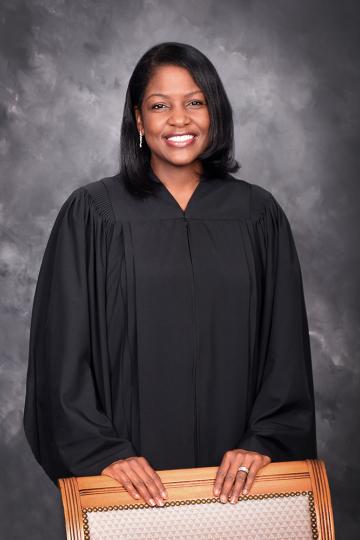
Justice Fabiana Pierre-Louis was nominated by Gov. Phil Murphy on June 5, 2020 and was sworn in as an associate justice on Sept. 1, 2020. She is the first Black woman to serve on the New Jersey Supreme Court.
Born on Sept. 9, 1980 in New York City, Justice Pierre-Louis spent her early childhood in Brooklyn and moved to Irvington, NJ when she was eight years old. She received a bachelor's degree from Rutgers University in New Brunswick and a law degree from Rutgers Law School.
At the time of her appointment, Justice Pierre-Louis was a partner at Montgomery, McCracken, Walker & Rhoads where she worked in the white collar and government investigations practice group. She focused her practice on complex commercial litigation, white collar crime, and government investigations.
Prior to that, Justice Pierre-Louis was an Assistant United States Attorney at the U.S. Attorney’s Office, where she served as the Attorney-in-Charge of the Trenton and Camden branches and was the first woman of color to hold both positions. Justice Pierre-Louis also worked in the Newark office in the general crimes and organized crime and gang units.
Justice Pierre-Louis began her legal career as a law clerk to New Jersey Supreme Court Associate Justice John E. Wallace Jr., whose seat she now occupies.
Justice Pierre-Louis and her husband have two sons.
Justice Rachel Wainer Apter
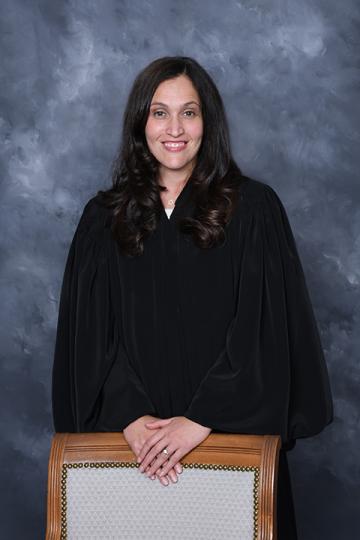
Justice Rachel Wainer Apter was nominated by Gov. Phil Murphy and was sworn in as an associate justice on Oct. 21, 2022.
Born on July 22, 1980, Justice Wainer Apter grew up in Rockaway. She graduated from the University of Pennsylvania and received her law degree from Harvard Law School. After law school, she served as a law clerk for U.S. District Judge Jed Rakoff, U.S. Circuit Judge Robert Katzmann, and U.S Supreme Court Associate Justice Ruth Bader Ginsburg.
At the time of her appointment, Justice Wainer Apter was serving as director of the New Jersey Division on Civil Rights. She previously served as counsel to the New Jersey Attorney General and assistant attorney general.
Before joining the Attorney General’s Office, Justice Wainer Apter worked as a senior staff attorney at the American Civil Liberties Union (ACLU) and in the Supreme Court and Appellate practice at Orrick, Herrington & Sutcliffe.
Justice Wainer Apter and her husband have three children.
Justice Douglas M. Fasciale
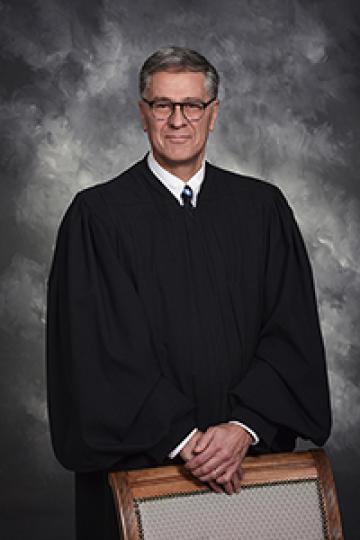
Justice Douglas M. Fasciale was nominated by Gov Phil Murphy and was sworn in as an associate justice on Oct. 21, 2022.
Justice Fasciale was born on Nov. 5, 1960, and was raised in East Brunswick.
Justice Fasciale received his Bachelor of Arts degree from Seton Hall University in 1982. In 1986, he received his Juris Doctor from Seton Hall University School of Law. He immediately served his judicial clerkship with Judge John E. Keefe, who served in the Superior Court and in the Appellate Division, and then practiced law as a trial attorney for approximately 17 years. In 2000, he became a Certified Civil Trial Attorney by the New Jersey Supreme Court, a designation that was held by fewer than 3 percent of New Jersey attorneys.
In 2004, Gov. James McGreevey appointed Justice Fasciale to the Superior Court for a 7-year term. In 2011, Gov. Chris Christie re-appointed him to the Superior Court, where he served as a tenured judge. Chief Justice Stuart Rabner temporarily assigned Justice Fasciale to the Supreme Court effective September 2022.
At the trial level, Justice Fasciale served in the civil, criminal, and family parts of the Superior Court. Before elevation to the appellate court, Chief Justice Rabner designated him presiding judge of the civil and criminal parts. He also served as a recovery court judge.
In May 2010, Chief Justice Rabner elevated Justice Fasciale to the Appellate Division of the Superior Court, where he served as a presiding judge before becoming a member of the Supreme Court.
Justice Fasciale is an elected member of the American Law Institute. In 2023, Justice Fasciale obtained a Masters of Judicial Studies LL.M. degree from Duke University School of Law. As part of the three-year master’s program, he authored. A Case Study Analyzing How Trial Judge Experience Shapes Intermediate Appellate Review of Discretionary Determinations, 53 Seton Hall L. Rev. 1043 (2023).
Justice Michael Noriega
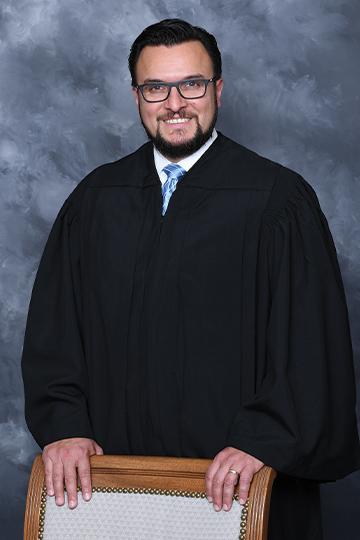
Justice Michael Noriega was nominated by Gov. Phil Murphy and was sworn in an associate justice on July 6, 2023.
Born on March 27, 1978, Justice Noriega grew up in Union City. He graduated from Rutgers University with a degree in American studies in 1999 and received his law degree from Seton Hall University School of Law in 2002.
At the time of his appointment, Justice Noriega was a partner at Bramnick, Rodriguez, Grabas, Arnold, and Mangan, where he specialized in immigration and criminal law. He also was an adjunct professor at Seton Hall School of Law and served as chair of the immigration law section of the New Jersey State Bar Association.
Before joining Bramnick, Rodriguez, Grabas, Arnold, and Mangan, Justice Noriega operated his own law firm, Noriega & Associates, where he practiced immigration and criminal law. He began his legal career as an assistant public defender in Essex County.
Justice John Jay Hoffman
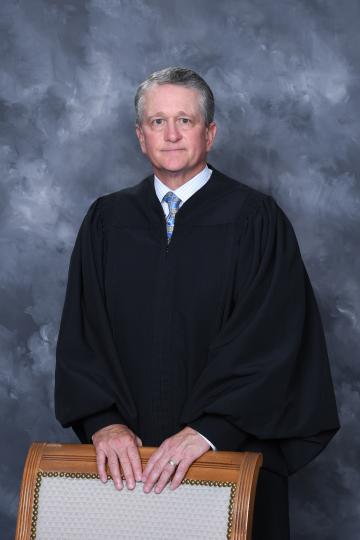
Justice John Jay Hoffman was nominated as an associate justice of the New Jersey Supreme Court by Gov, Phil Murphy and was sworn in on Oct. 2, 2024.
Born in New Brunswick in 1965, Justice Hoffman was raised in Middlesex County. He graduated from Colgate University and Duke University School of Law and served as a law clerk to Judge Al Engel of the 6th U.S. Circuit Court of Appeals.
At the time of his appointment, Justice Hoffman was general counsel and senior vice president at Rutgers University, where he served as the state university’s chief legal officer.
Prior to that, Justice Hoffman served as acting attorney general of New Jersey from June 2013 to March 2016.
Justice Hoffman began his legal career as an associate at Akin, Gump, Strauss, Hauer & Feld, L.L.P. in Washington, D.C. He joined the U.S. Department of Justice in 1996 as a trial attorney in the civil division before moving to the U.S. Attorney's Office in Trenton in 2005. Justice Hoffman then served as director of investigations at the New Jersey Comptroller's Office, starting in 2010.
Justice Hoffman and his wife have a son and a daughter.
Supreme Court Seating Diagram
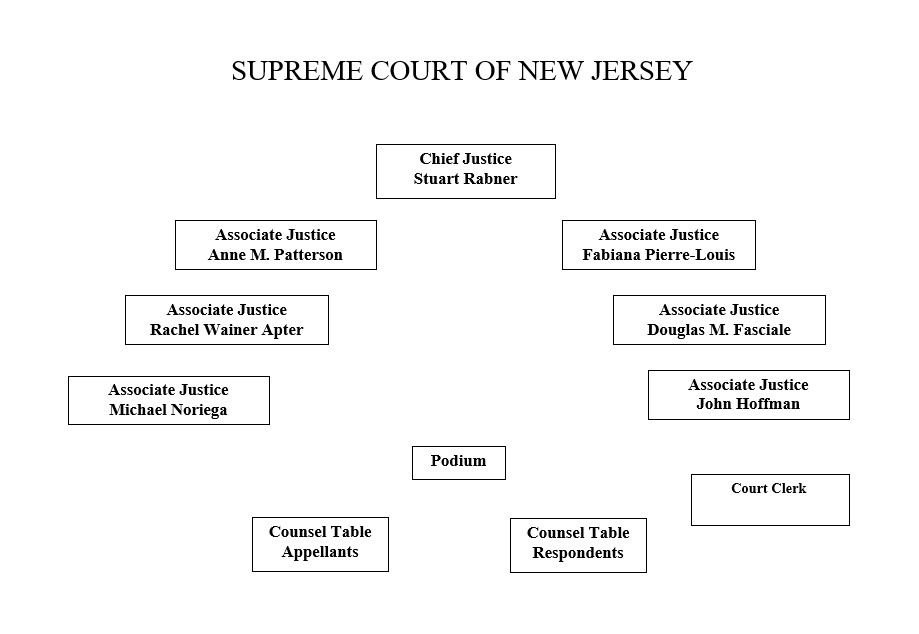
Visit the Supreme Court Virtual Museum to discover more about the legacy of the court.